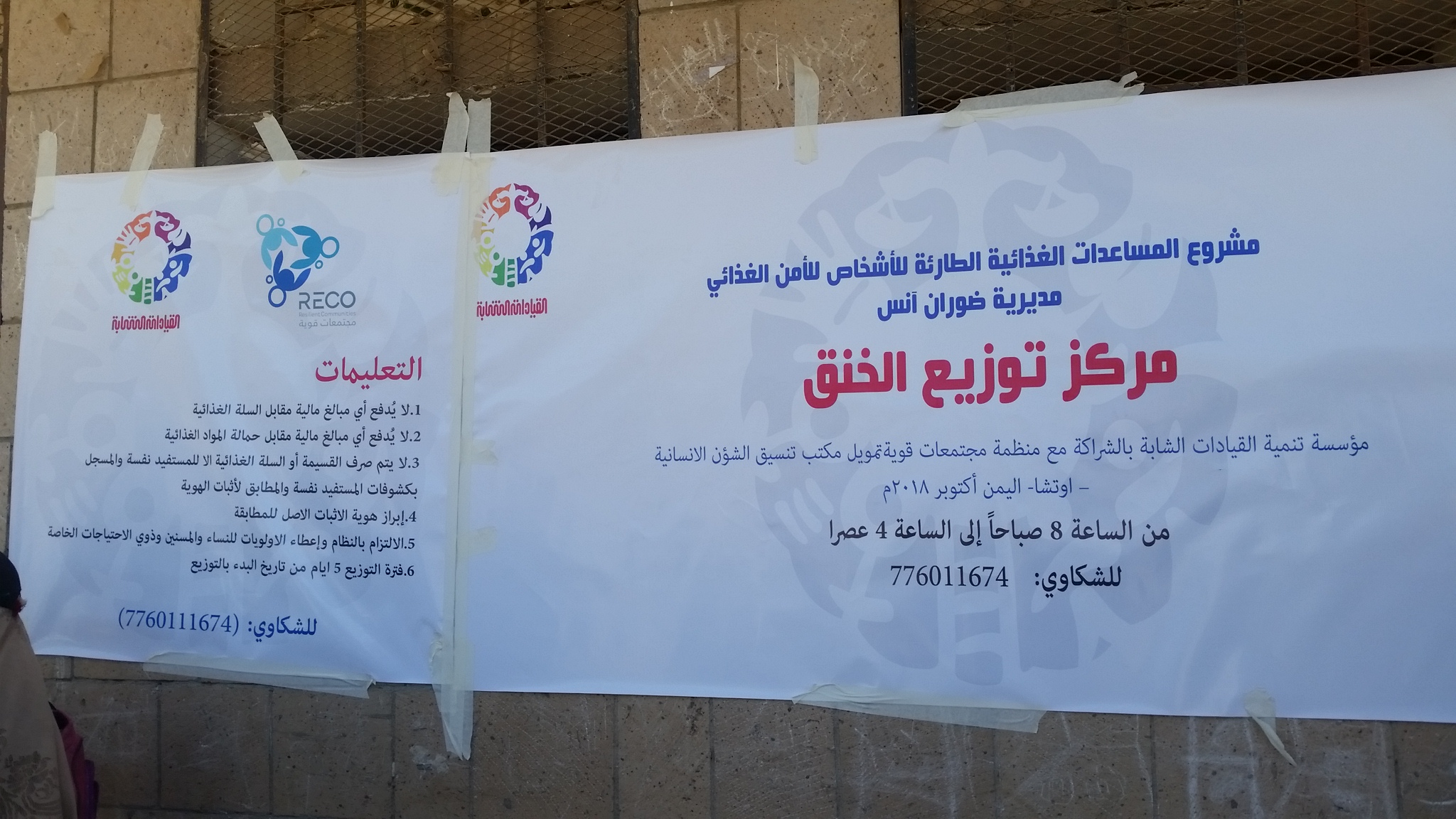Emergency Life-Saving Food Assistance to the Most Vulnerable Affected People in Doran-Anees & Jabal-Alsharq Districts of Dhamar governorate

This project is designed to address the immediate causes of food insecurity and malnutrition through improving the availability of & access to food for the most vulnerable affected by the conflict, based on FSAC Selection criteria, Dhuran and Jabal Alsharq districts of Dhamar Governorate. The project contributes to prevent the increase of food insecurity and malnutrition level through the provision of unconditional life-saving food assistant; voucher/cash approach. The project provides equitable access to food baskets confirming to FSAC/Sphere standards for most vulnerable 4200 HHs in targeted districts. This project is designed in coordination with FSAC-Sana’a and National and other NGO's operating in the area. The project is designed in line with AAP, gender mainstreaming and protection commitments endorsed by FSAC-Yemen. The engagement of targeted communities/beneficiaries is strongly through all phases the of the project. In the basic needs assessments, Focus Group Discussion, recently conducted by YLDF/and its Sub Implanting Partner (SIP); Resilient Communities Organization; men, women, boys, girls, the elderly, and disabled people were consulted to understand their needs and preferences for location, design, and assistance modality. Beneficiaries participation will continue throughout planning and implementation ensuring that beneficiaries know they have a right to equitable and safe assistance, where and how to obtain it with clear instruction and directions. Direct discussion with community representatives to be conducted to identify the adaptions needed for the most vulnerable. Beneficiaries & other stakeholders’ involvement in monitoring process will be considered and their satisfaction is also one of the main indicators to be measured. A complaints feedback mechanism will be established aiming to improving programming, assisting in understanding beneficiary and community perceptions, promoting beneficiary empowerment and assisting in the early detection of problems such as targeting, misconduct e.g. Sexual exploitation and abuse, food diversion and fraud. During execution, regular progress updates on project indicators to be achieved challenges/how the challenges are dealt with, result of BCFM and how they were handled, levels of achievement will be shared with the stockholders with desegregated data for beneficiaries on sex and age where applicable. Local authorities and stockholder (including women and men) will be informed of humanitarian principles, lows, standards …etc. through informative session. Selection of beneficiaries is nondiscriminatory based on clear beneficiaries’ HHS vulnerability selection criteria endorsed by FSAC prioritizing the most vulnerable of women, men, boys and girls.